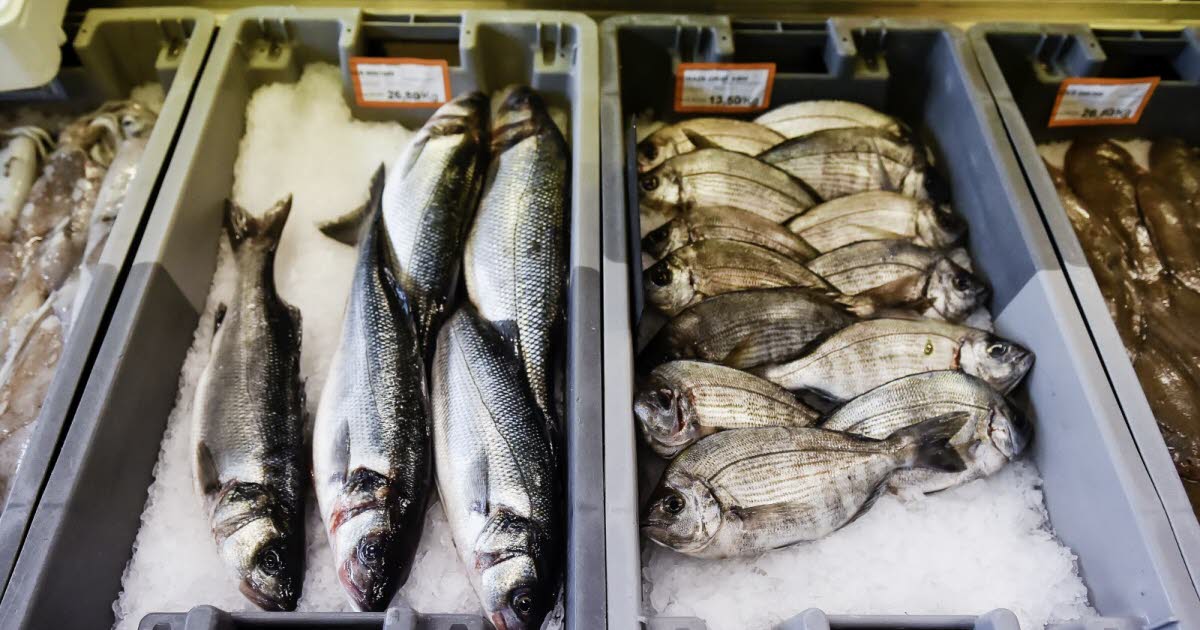On Tuesday the 27th approved 2023 fishing quotas in EU waters, strongly criticized by environmental NGOs and a compromise on eel catches, which Brussels wants to tightly control.
“Best possible outcome”
After a night of final discussions, the ministers responsible for fisheries decided on the “Total Allowable Catches” by species, which will apply from 1is European fishermen in the Atlantic, North Sea, Mediterranean and Black Sea from January.
This is the best outcome to guarantee the continuity of our fishing fleet without compromising our commitment to the sustainability of fisheries resources, assured Czech Agriculture Minister Zdenek Nekula, who chaired the meeting.
The agreement “protects the ability of fishermen to do their job (…) and takes into account the efforts made in our stock management plans. We must adapt to the realities of sea faces,” French State Secretary Hervé Berville told AFP.
Eels of Discord
The European Commission’s proposal to ban the trapping of rats for six months in line with migration has been hotly debated. Fishermen’s organizations have assessed that this will threaten the survival of their activities.
In the end, twenty-seven agreed to extend commercial eel fishing in marine and saltwater for six months, but allowed states to adjust this period according to regions, species’ stages of development, and migration periods. .
“The proposal was uniform and brutal (…) we can adapt it according to the basins, an application starts in March, not on 1is In January, not to condemn the current fishing campaign,” Herve Berville insisted.
The Western Mediterranean is subject to difficult negotiations due to regional overfishing, while the 2020-2025 Management Plan provides for significant reductions to achieve sustainable management.
States approved a 7% reduction in fishing effort by trawlers and retained a compensatory system that allowed them additional days as conditions dictated. However, catch rates in the Mediterranean exceed the recommendations of the Commission and scientists.
In the Atlantic, ministers raised catch rates for several stocks that have shown significant progress, notably whiting, sole and Norway’s lobster in the Bay of Biscay – an area where pollack quotas were maintained, while Brussels wanted a 10% cut.
Current quotas have been renewed for plaice west of Ireland, as well as along the Atlantic coast, but have been cut significantly only in the northern waters of the North Sea.
“Ministers decide to ignore the law again”
“We see very modest progress” in the Atlantic, where “scientific management of resources has proven to be profitable”, allowing a large part of the quota to be raised, but “ministers are reluctant to stop overfishing in the Mediterranean Sea or in the sea. Regarding eels”, denounces Vera Coelho of the NGO Oceana. .
“Ministers have again chosen to ignore European (environmental) law and maximize catches to the detriment of protecting the most vulnerable stocks,” agrees Jenny Grossman of legal NGO Client Earth.
“Their reluctance to close all eel fisheries may be the final nail in the coffin of this critically endangered species,” as scientists consider all fishing to be “unsustainable,” she insists.
Separate talks are ongoing with London to agree by the end of December 2023 quotas on water shared between the EU and the United Kingdom.

Prone to fits of apathy. Unable to type with boxing gloves on. Internet advocate. Avid travel enthusiast. Entrepreneur. Music expert.



